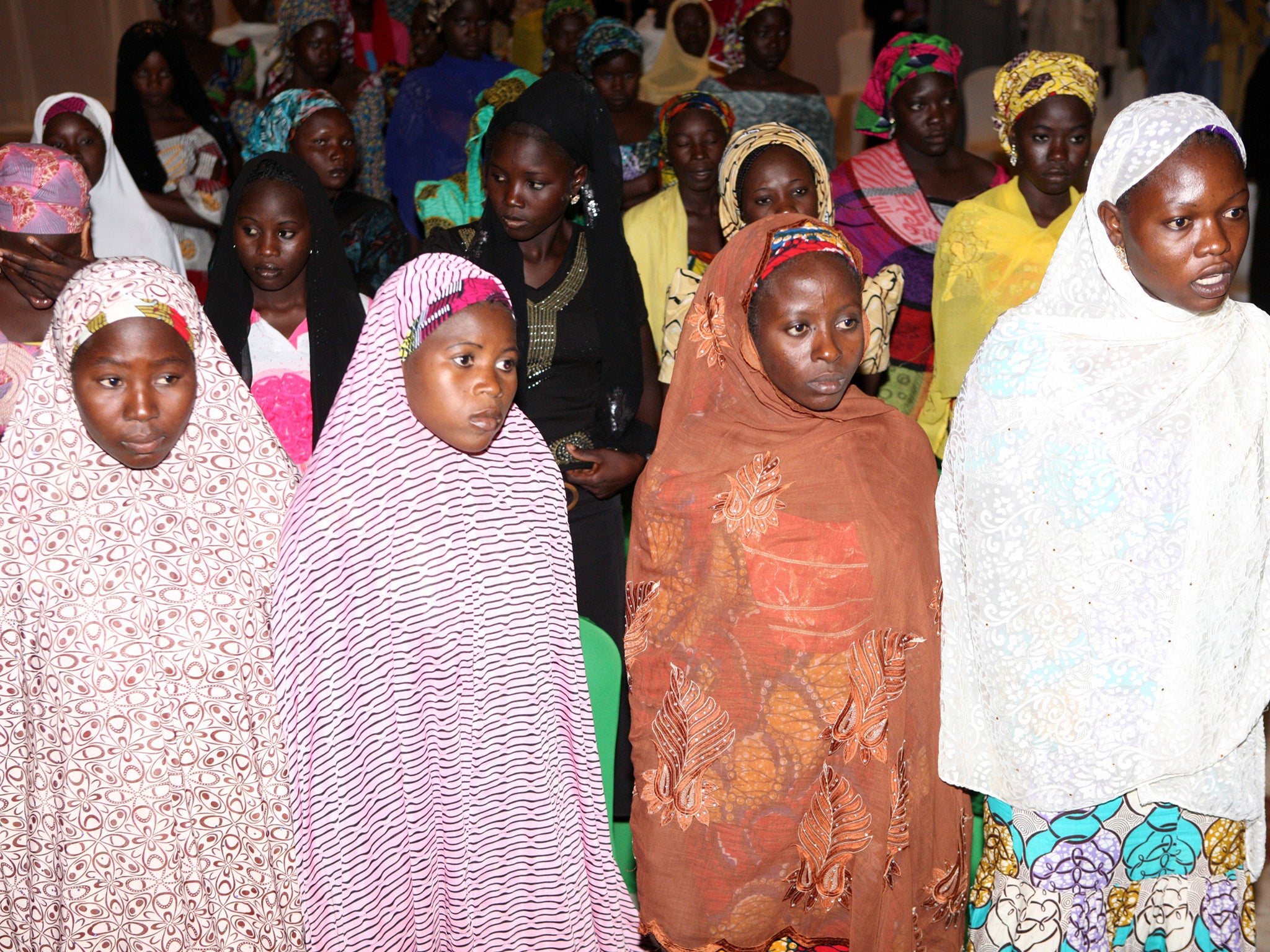Inside Boko Haram: Women and girls forced to marry, convert and endure forced labour and rape in captivity
Video: Human Rights Watch spoke to over 46 witnesses and victims of Boko Haram abductions, including those who escaped from the Chibok secondary school abduction

Your support helps us to tell the story
From reproductive rights to climate change to Big Tech, The Independent is on the ground when the story is developing. Whether it's investigating the financials of Elon Musk's pro-Trump PAC or producing our latest documentary, 'The A Word', which shines a light on the American women fighting for reproductive rights, we know how important it is to parse out the facts from the messaging.
At such a critical moment in US history, we need reporters on the ground. Your donation allows us to keep sending journalists to speak to both sides of the story.
The Independent is trusted by Americans across the entire political spectrum. And unlike many other quality news outlets, we choose not to lock Americans out of our reporting and analysis with paywalls. We believe quality journalism should be available to everyone, paid for by those who can afford it.
Your support makes all the difference.Women and schoolgirls abducted by the Nigerian Islamist group Boko Haram have been forced "to marry, convert, and endure physical and psychological abuse, forced labour, and rape in captivity", according to a report by Human Rights Watch.
The report comes in the wake of April's abduction of 276 girls from Chibok secondary school, which was widely covered by the international media and led to the #Bring Back Our Girls campaign. Human Rights Watch spoke to some of the schoolgirls who managed to escape April's kidnapping.
According to Human Rights Watch, Boko Haram has abducted more than 500 women and girls since 2009. These abductions have intensified since May 2013 after Nigeria imposed a state of emergency in areas of the country where Boko Haram is most active.
Boko Haram, which means "Western education is forbidden", has been fighting against the Nigerian government for the last five years as it attempts to create an Islamist enclave in the north-eastern region of the country.
Human Rights Watch's report, based on interviews with those who had been abducted as well as with social workers, diplomats and journalists among others, claims that not only has the Nigerian government failed to protect many women by providing safe schools and investigating kidnappings, the administration has not provided mental health support or medical care to those who have returned home after captivity.
Mausi Segun, Human Rights Watch's Nigeria researcher, said that Boko Haram kidnappings had been happening long before the events at Chibok secondary school and that there had been a "culture of silence and a certain taboo around the issue and we decided that it was important to document the abuses that they have suffered".
One woman, "Hadiza", told Human Rights Watch that when she was abducted in November 2013 her captors said, "You are going to convert to Islam by taking the oath of Kalima Shahada. You will not go home, and we will marry you off since you are still young.
"We did not really agree (to convert) and were uncomfortable but the insurgents said, 'If you don’t stop misbehaving, we’ll shoot you and throw your corpses into the river.'"
Another woman, "Gloria", said that when she was captured, they instantly released all the Muslims and kept the Christians. Some were forced to convert to Islam and then marry the insurgents. "Gloria" spoke of being raped by her captors.
She said, "They warned us that when we get home we shouldn't expose them by talking to the media. They said if we do, they would track us down and deal with us."
"Hauwa", who was captured in September 2013, said that she was forced to go out on military operations with Boko Haram.
"I usually carried their bullets", she said in an interview. "When they wanted me to kill the first man, my body was shaking and I fell down on the ground. They forced me to get up and watch as they killed the second person. At that point, I was thinking I should grab a gun from the insurgents and kill myself since they had taught us how to shoot."
"Hauwa" spoke of the lack of support and the culture of silence that Human Rights Watch found in many of the stories from Boko Haram victims. "When I returned home after my escape people would tell me not to dwell on my experiences", she said. "My dreams are filled with regret for renouncing my religion instead of enduring the abuse of the insurgents. Even when I’m awake, I'm upset about the situation."
Daniel Bekele, the Africa director at Human Rights Watch, wrote, "The Chibok tragedy and #Bring Back Our Girls campaign focused much-needed global attention to the horrific vulnerability of girls in north-eastern Nigeria. Now the Nigerian government and its allies need to step up their efforts to put an end to these brutal abductions and provide for the medical, psychological, and social needs of the women and girls who have managed to escape."
The Nigerian military said recently that it hoped the schoolgirls kidnapped from Chibok secondary school would be released soon following a deal with Boko Haram. However, the girls have still not been freed and in recent days fighting has intensified between the government and the Islamist insurgents.
Join our commenting forum
Join thought-provoking conversations, follow other Independent readers and see their replies
Comments